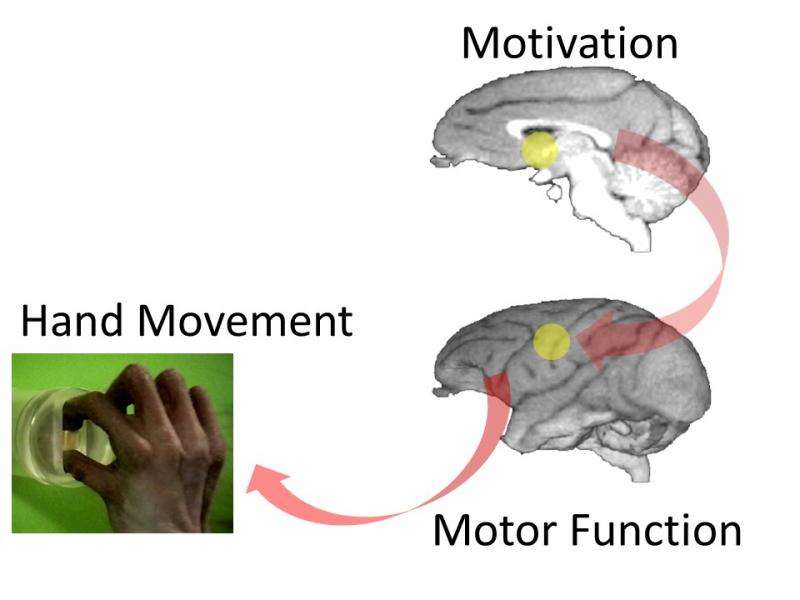Neuroscientific evidence that motivation promotes recovery after spinal cord injury

It is known by clinical experiences that motivation enhances patients' recovery from spinal cord injury or stroke. Depressive symptoms of the patients suffering from such brain injury could be a factor to delay functional recovery. However, there has been no neuroscientific evidence how motivation affects the patients' recovery of motor function in rehabilitation.
Here, the research team led by Associate Professor Yukio Nishimura, National Institute for Physiological Sciences (NIPS), Natural Institutes of Natural Sciences (NINS), and Masahiro Sawada, a former graduate student of Kyoto University, and Dr. Hirotaka Onoe, a team leader at RIKEN Center for Life Science Technologies found that the nucleus accumbens, that control motivation in the brain, activates the activity of the motor cortex of the brain, and then promotes recovery of motor function during the early stage of recovery after spinal cord injury. This result is published in Science, October 2nd, 2015.
The research team focused on the relationship between the neuronal activity of the nucleus accumbens that controls motivation, and those of the motor cortex that controls motor function, in a monkey suffering from spinal cord injury. When the researchers temporally blocked the activity of the nucleus accumbens of the monkey 1 month after spinal cord injury, the monkey's motor cortex activity was suppressed and a transient deficit of amelioration in finger dexterity was obtained by rehabilitation. In the intact monkey, and also in the fully recovered stage (3 months after spinal cord injury), such deficit in hand movement by blocking the activity of the nucleus accumbens was not observed. This suggests that the nucleus accumbens makes a causal contribution to the functional reinstatement of hand control during early stage recovery, and the activity of the nucleus accumbens successfully promotes functional recovery.
Dr. Nishimura said, "Our result suggests that in the early stage after brain injury including spinal cord injury, it is important to motivate the patients for promoting functional recovery in rehabilitation. Psychological support for these patients may be important."
More information: "Function of nucleus accumbens in motor control during recovery after spinal cord injury" www.sciencemag.org/lookup/doi/ … 1126/science.aab3825















